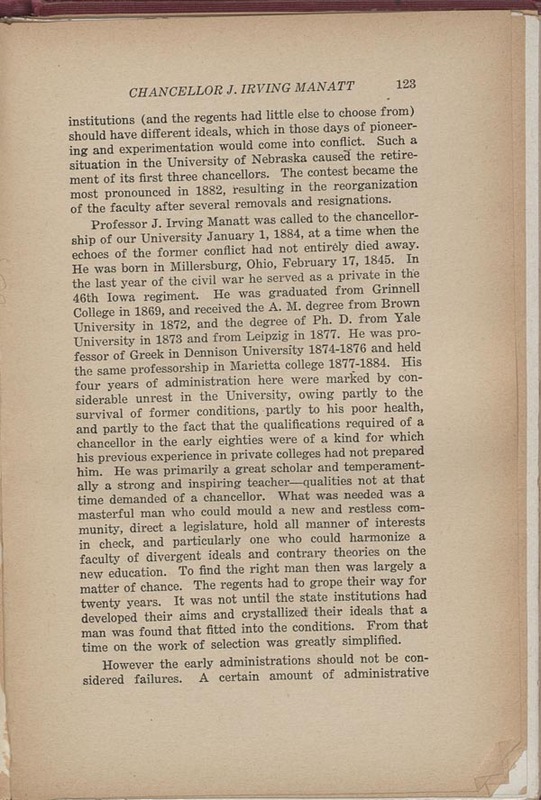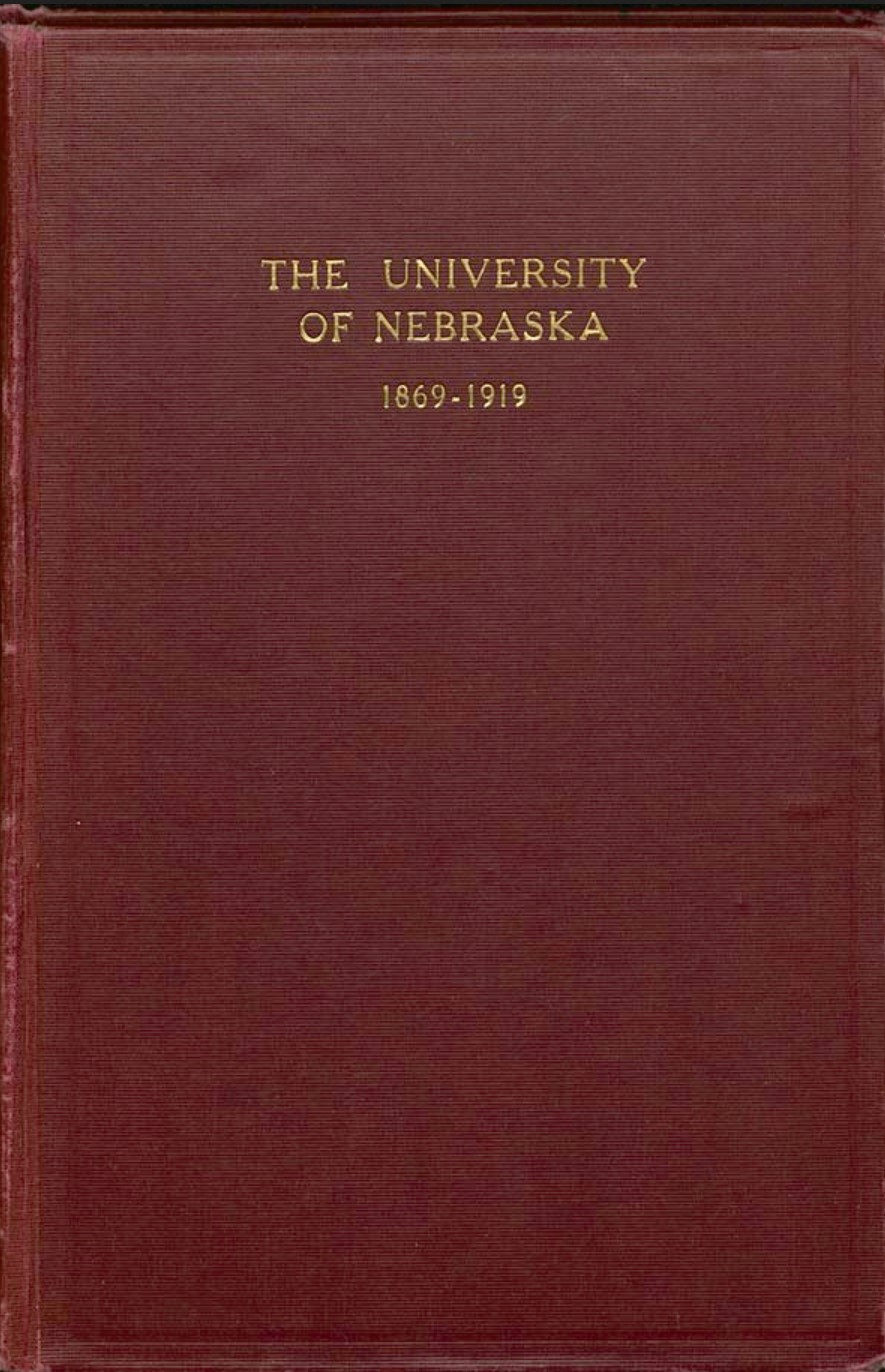129
Item
-
Title
-
129
-
Description
-
Semi-Centennial Anniversary Book: The University of Nebraska, 1869-1919
-
Transcription
-
institutions (and the regents had little else to choose from) should have different ideals, which in those days of pioneering and experimentation would come into conflict. Such a situation in the University of Nebraska caused the retirement of its first three chancellors. The contest became the most pronounced in 1882, resulting in the reorganization of the faculty after several removals and resignations.
Professor J. Irving Manatt was called to the chancellorship of our University January 1, 1884, at a time when the echoes of the former conflict had not entirely died away. He was born in Millersburg, Ohio, February 17, 1845. In the last year of the civil war he served as a private in the 46th Iowa regiment. He was graduated from Grinnell College in 1869, and received the A. M. degree from Brown University in 1872, and the degree of Ph. D. from Yale University in 1873 and from Leipzig in 1877. He was professor of Greek in Dennison University 1874-1876 and held the same professorship in Marietta college 1877-1884. His four years of administration here were marked by considerable unrest in the University, owing partly to the survival of former conditions, partly to his poor health, and partly to the fact that the qualifications required of a chancellor in the early eighties were of a kind for which previous experience in private colleges had not prepared him. He was primarily a great scholar and temperamentally a strong and inspiring teacher—qualities not at that time demanded of a chancellor. What was needed was a masterful man who could mould new and restless community, direct a legislature, hold all manner of interests in check, and particularly one who could harmonize a faculty of divergent ideals and contrary theories on the new education. To find the right man then was largely a matter of chance. The regents had to grope their way for twenty years. It was not until the state institutions had developed their aims and crystallized their ideals that a man was found that fitted into the conditions. From that time on the work of selection was greatly simplified.
However the early administrations should not be considered failures. A certain amount of administrative
-
Rights
-
To inquire about usage, please contact Archives & Special Collections, University of Nebraska-Lincoln Libraries. These images are for educational use only. Not all images are available for publication.



